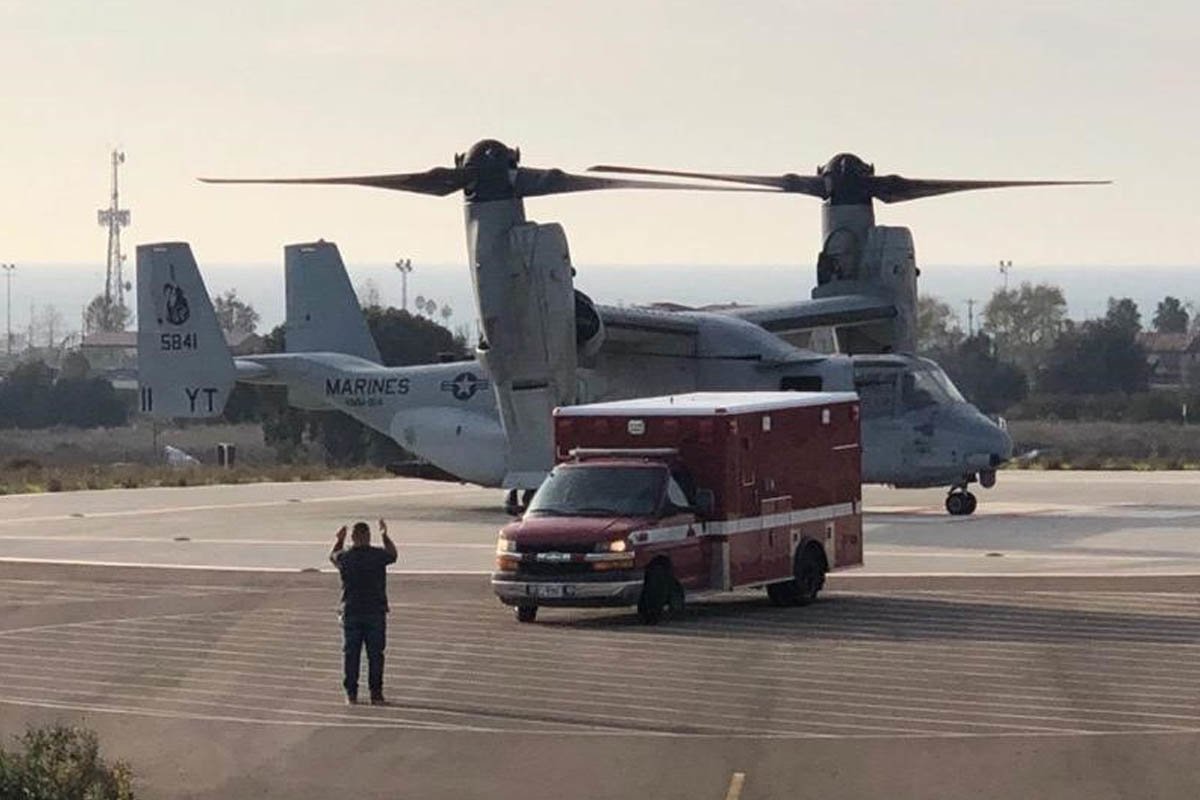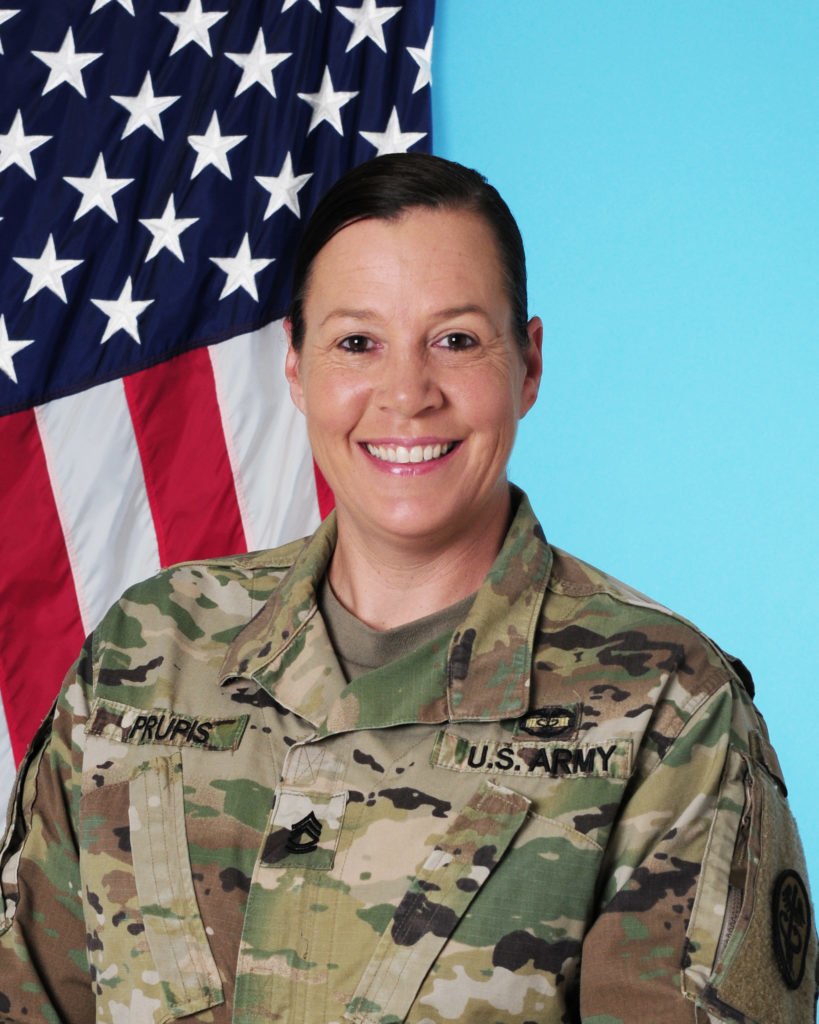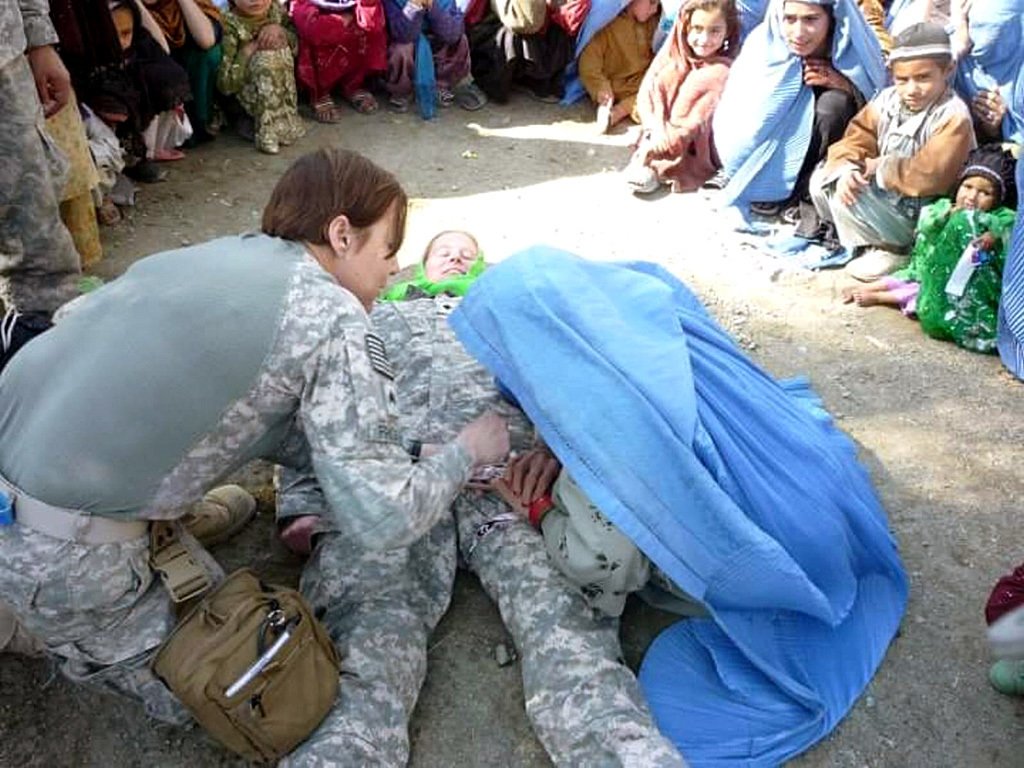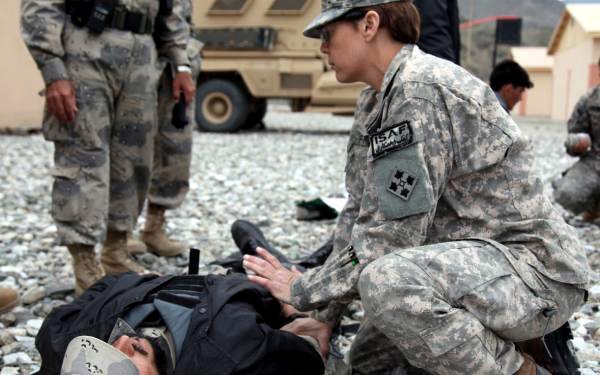
This article was originally published Dec. 23, 2019, by the Department of Defense.
SEMBACH, Germany — In a real-life situation reminiscent of something from a movie, a U.S. Army combat medic used the skills she learned from a 17-year career to help an unconscious passenger on a Dec. 14 flight from Portugal to Germany.
“We were about 90 minutes from landing and the flight crew made an announcement that they were looking for a doctor onboard,” said Sgt. 1st Class Teresa Prupis. “Nobody stood up so I did.”
Prupis, a Regional Health Command Europe liaison officer to the U.S. Army Europe Office of the Command Surgeon, found a 24-year-old man passed out in his seat and covered in sweat. “I checked his airway, his breathing, his circulation and asked for what medical equipment they had onboard while my husband helped me get this man out of his seat and onto the floor.”

“I asked the flight attendant to get his legs elevated so more blood would circulate to his vital organs and I applied an oxygen mask,” said Prupis. “Eventually he came to, we got him back to his seat and I was able to ask questions through an off-duty airline employee who was able to translate for me.”
“At one point the captain asked if they needed to divert the flight and it was awkward for me because depending on what I said, that’s what was going to happen,” said Prupis. “I told the pilot we could land in Germany as scheduled.”
“We landed in Frankfurt and there was a medical staff and doctor waiting as soon as they opened the door to the plane,” she said. “The Germans knew English so I was able to explain to them what had been happening and what I did. The flight crew thanked me profusely once he was off the plane.”

Amazingly, this was not Prupis’ first time providing medical assistance on a flight. “My family says they don’t want to fly with me anymore,” said Prupis with a smile.
“I’m a person who believes your path is set forward. I’m just apparently in the right place at the right time. It’s a privilege and an honor to do medical care.”
Prupis joined the Army after Sept. 11. She was a police officer in North Carolina but chose to be a combat medic after seeing the care her father received while he battled with and passed away from cancer. “I was taken aback by the care he received and the compassion,” she said. “I wanted to return that care to others.”

The combat medic specialist is primarily responsible for providing emergency medical treatment at the point of injury on the battlefield, limited primary care, and health protection and evacuation from a point of injury or illness.
“Being an Army combat medic is beyond rewarding and I have no regrets about picking this career field. I think the U.S. Army does such a great job training personnel and it’s an honor to assist anywhere.”
RHCE is responsible for all Army medical treatment facilities, dental clinics, veterinary clinics and public health services within the European Command.

For more content like this, visit https://www.dvidshub.net/news.
BRCC and Bad Moon Print Press team up for an exclusive, limited-edition T-shirt design!
BRCC partners with Team Room Design for an exclusive T-shirt release!
Thirty Seconds Out has partnered with BRCC for an exclusive shirt design invoking the God of Winter.
Lucas O'Hara of Grizzly Forge has teamed up with BRCC for a badass, exclusive Shirt Club T-shirt design featuring his most popular knife and tiomahawk.
Coffee or Die sits down with one of the graphic designers behind Black Rifle Coffee's signature look and vibe.
Biden will award the Medal of Honor to a Vietnam War Army helicopter pilot who risked his life to save a reconnaissance team from almost certain death.
Ever wonder how much Jack Mandaville would f*ck sh*t up if he went back in time? The American Revolution didn't even see him coming.
A nearly 200-year-old West Point time capsule that at first appeared to yield little more than dust contains hidden treasure, the US Military Academy said.












